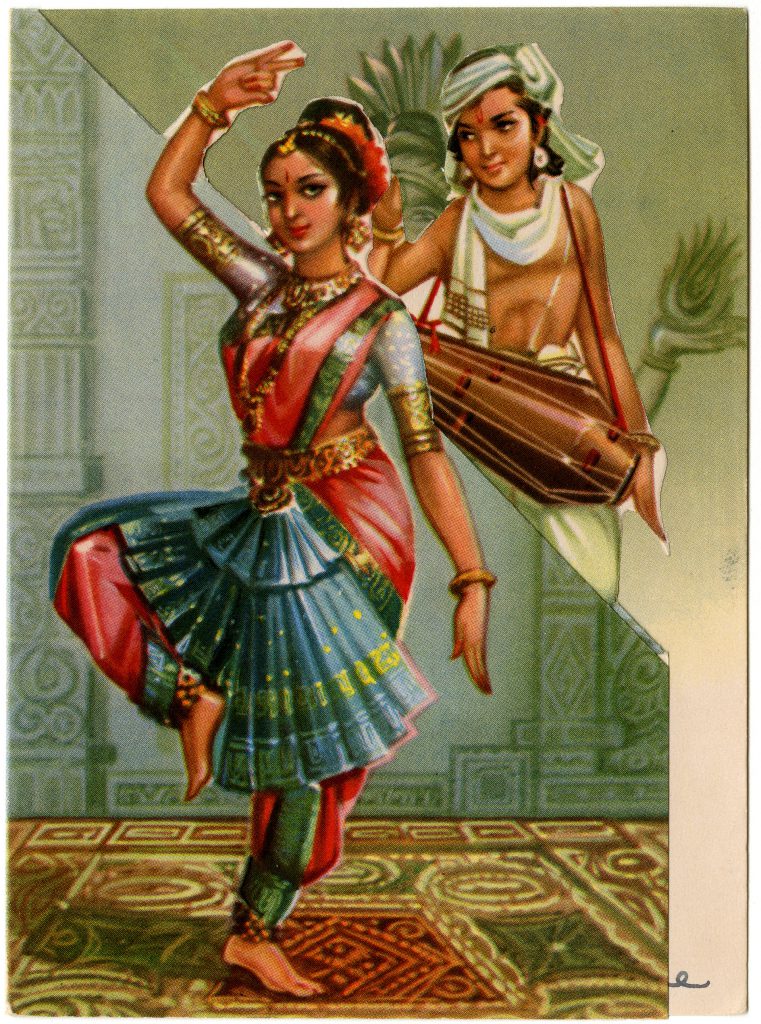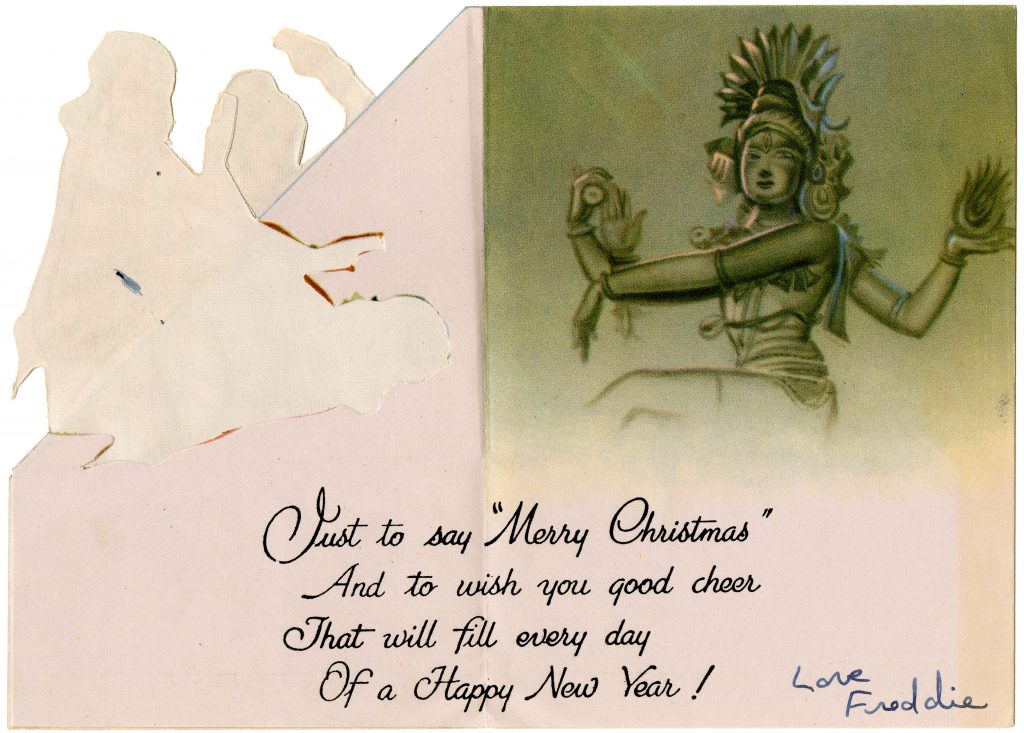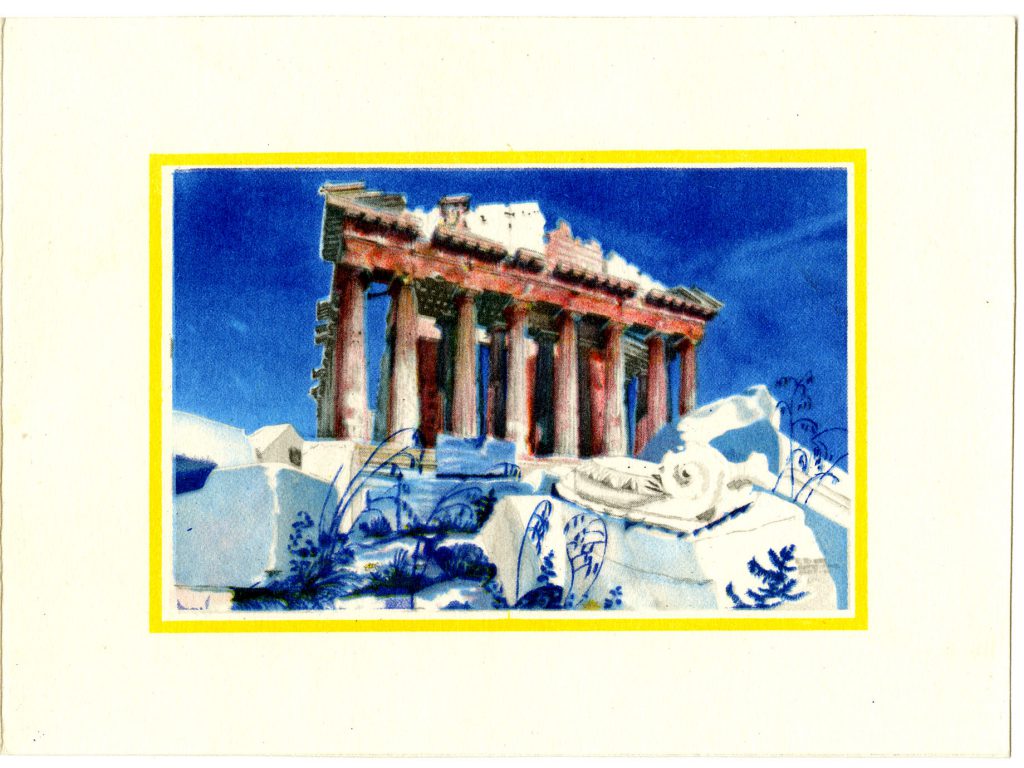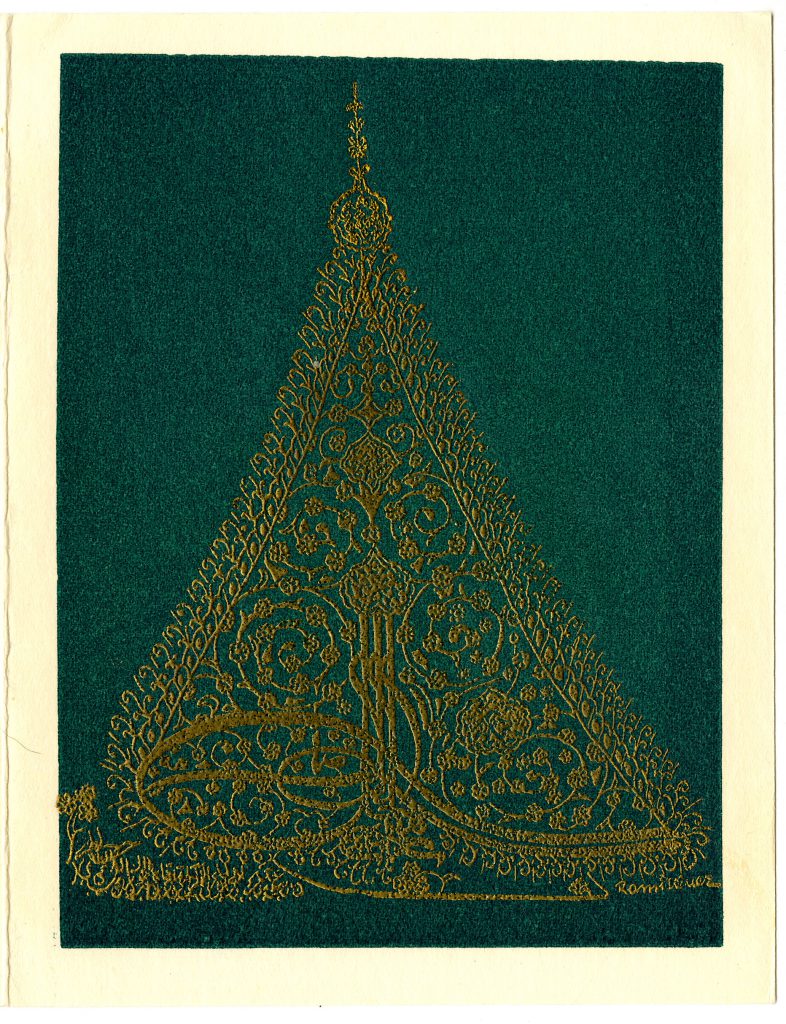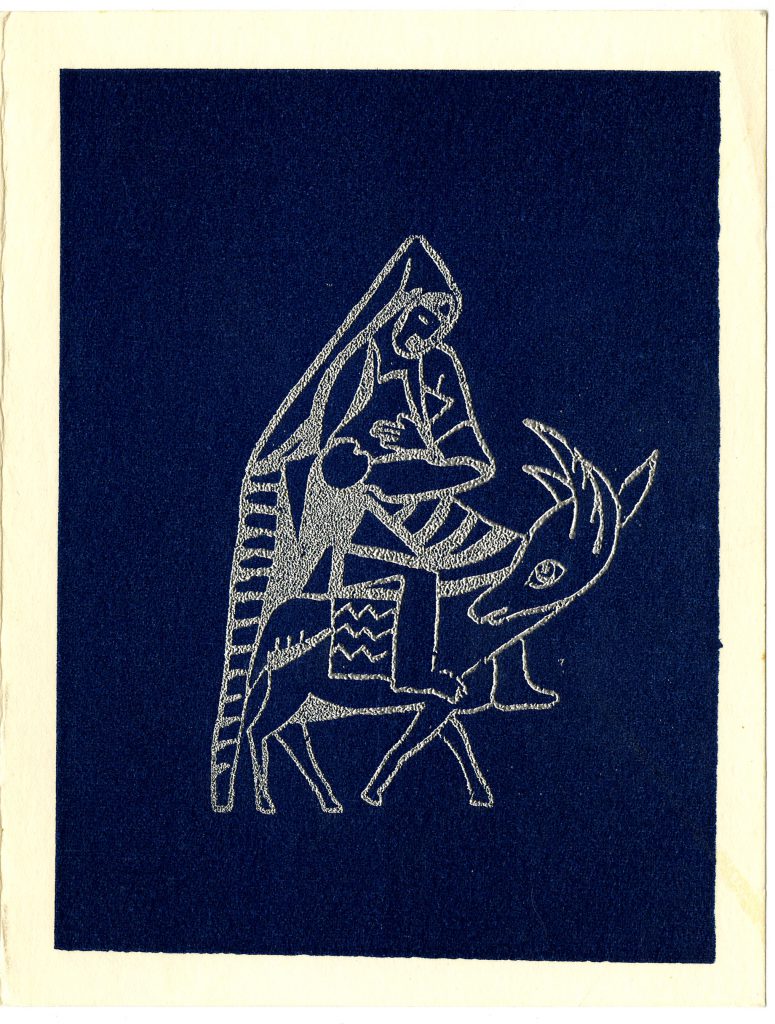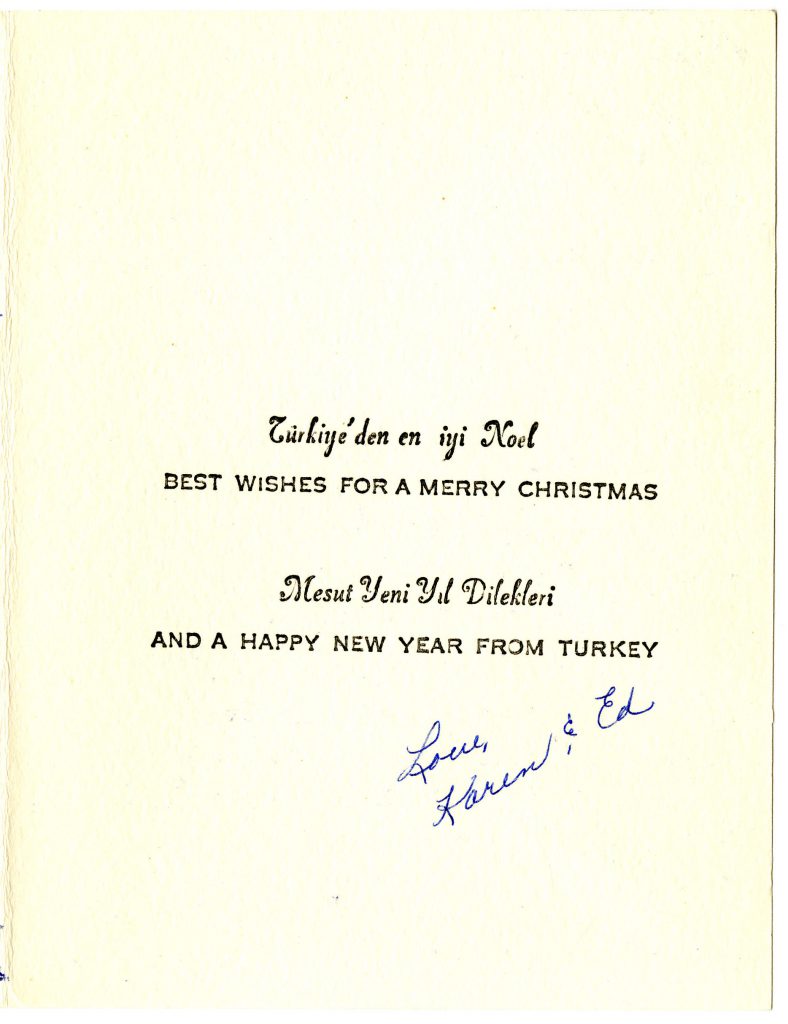Last week, the Peace Corps Community Archive featured an interview with Robert Meade, a RPCV who served in Paraguay. This week we asked RPCV Karen (Thode) DeAntoni about her expereinces in Turkey. While serving in Turkey Karen met her future husband, Ed DeAntoni. Last year, we featured a post about their engagement and marriage in Turkey. Both Karen and Ed DeAntoni’s Peace Corps materials are located in the Peace Corps Community Archive.

Karen (Thode) DeAntoni’s Turkey IV biographical sketches booklet photograph. PCCA.
Q: What inspired you to enter the Peace Corps?
A: I had been considering joining the PC. I was just beginning my third year of teaching 9th grade English and French…and feeling restless. Then President Kennedy was assassinated, and that did it. I was so eager to do something more “worthwhile” than just teaching in a suburban school. I ordered forms immediately and by spring of 1964, I had been accepted. I requested Turkey and got my first choice.
Q: What surprised you most about your first few weeks outside the United States?
A: We had already had a month of training in Putney, VT, with the last 2 months to be in Istanbul. So I had had the culture and language training, pretty much 24/7 and “de-selection” had occurred. I knew what to expect. I think the food was the hardest part in those early weeks. I was shocked to go to breakfast at Robert College and have tea, plain yogurt, black olives, and bread waiting to start the day. I don’t think I had ever eaten lamb or eggplant or a lot of (olive) oil in my food. I had real trouble eating the early meals. (I was born/raised in South Dakota and hadn’t ventured into foreign foods.)

Karen (Thode) DeAntoni and Helen Evans in Istanbul, 1964, PCCA.
Q: What projects did you work on during your Peace Corps service and what challenges did you face during their completion?
A: I was assigned to teach English at Middle East Technical University, then an English-language university outside of Ankara. I was initially very disappointed because I had expected a “hardship site.” Because I had taught school before joining the PC, somehow they thought I was better equipped to teach these young (mostly) men than my peers who were fresh out of college. These METU students were not proficient in English. Most of my work was getting their grammar and written essays up to par, so they could perform better in their engineering classes. My students came from all over the Middle East–Jordan, Syria, Lebanon, and of course, Turkey.
In the end, it was a great assignment. I loved teaching those kids and working with fellow Turkish teachers (all women) who were fluent in English, had spent time in the US or Britain, and accepted me as one of them. They also admired me because I lived “on the economy” and countered the “ugly American” stereotype. My roommate had a similar assignment at a medical school. Our apartment became a haven for volunteers in the field who needed some time in a city, an American toilet, a real shower, and some home-cooked food (Helen and I had mastered the market/shopping/ cooking routine by then). This was a good news/bad news experience. Turkish culture at that time believed if a single man and woman were in an apartment without a chaperone, they must be romantically involved. Helen and I promised our landlord that nothing of the sort ever went on (it didn’t), but I’m not sure he believed us. Our neighbors for sure did not.
There were two major challenges at work: First, the anti-American mood hit Turkey in the summer of 1965. I was traveling in Greece with friends (including my Volunteer husband-to-be) and helping with another PC training program in Istanbul during the 3 months. When I returned to METU, I was shocked at the militancy of my former students. The main issue was, of course, Vietnam, and I had really no explanation for why the US continued its deep involvement. It was not easy to defend. When back in the States, I would become heavily involved in the anti-war movement. It was easy to see the worldwide effect of U.S. foreign policy.
Secondly, the Turkish head of the English Dept. at METU was an extremely difficult man. He had been educated at Oxford and had an annoying air of arrogance about him. He was all about meetings where he pretended to listen to input from the teachers (both PCV’s and Turks), but then did things his own way. I don’t believe he had ever taught in a classroom and was completely ignorant of what planning went on, what needed changing, what we needed from the budget, etc. He was dismissive of Peace Corps teachers. It was even more distressful because the Turkish natives in the Dept. completely agreed with us. They were embarrassed at how we were treated, but could do nothing about it because their jobs were in jeopardy. I became engaged to my current PC husband and we were married in January, 1966. My Turkish friends helped arrange our wedding (in the Italian Embassy chapel) and hosted our reception at a local “tennis club.” They were wonderful, and we remained friends via letters for several years!

Karen (Thode) DeAntoni, June 1965, Middle East Technical University, Ankara, Turkey. PCCA.
Q: How has your Peace Corps service influenced you in your post-Peace Corps work?
A: I went on to continue teaching English for a total of 34 years. My experiences in Turkey were never far from my duty at hand. I learned how to TEACH writing (something no college prepares prospective teachers how to do). I also learned how to run a department, how to listen, how to guide, and how to help my colleagues and interns evaluate and construct curriculum. I also coached a girls’ dance line, girls’ tennis, and cross country. Clearly, teaching–in the broadest sense of the word–was in my blood. I loved it.

Karen (Thode) DeAntoni with friends’ children, Turkey, Christmas 1964, PCCA.
Q: What advice would you give current and future Peace Corps volunteers?
A: Absorb all you can from your host country! Be patient. Laugh a lot. Try not to let negative experiences color your total experience. Master the language, if you can. If you can’t, do your best to become a part of your country and its inhabitants. If you don’t “love” them, let them love you. Don’t let your American ways be the only ways to do things. Defend what you believe about America. Don’t be afraid to agree with SOME criticisms of American foreign policy, including the military and its presence, if there is one. Stay “grounded”; make close friends with other PCV’s, for support, but don’t behave foolishly. It could come back to haunt you. And remember: this could be the most significant experience of your life!
That’s about it. I want to say that Ed and I still have a deep love for Turkey. We have been back twice, once to take our son and his wife so they could see why we loved it. We continue to cook Turkish food, use Turkish expressions in our daily conversations, and read anything we can about what is going on there. Our being wedded there and sharing the experience have been a great boon to our marriage (Note: we are coming up on our 50th wedding anniversary! We would love to celebrate it there, but January weather and expenses will keep us here with our sons, their wives, and grandchildren.)
And finally…the mailman just delivered a letter from a former student from 25 years ago who wants to reconnect. (Of course, I will!) And thanks me for being such “a wonderful teacher of life and literature.”
You can’t beat that for continual rewards…

